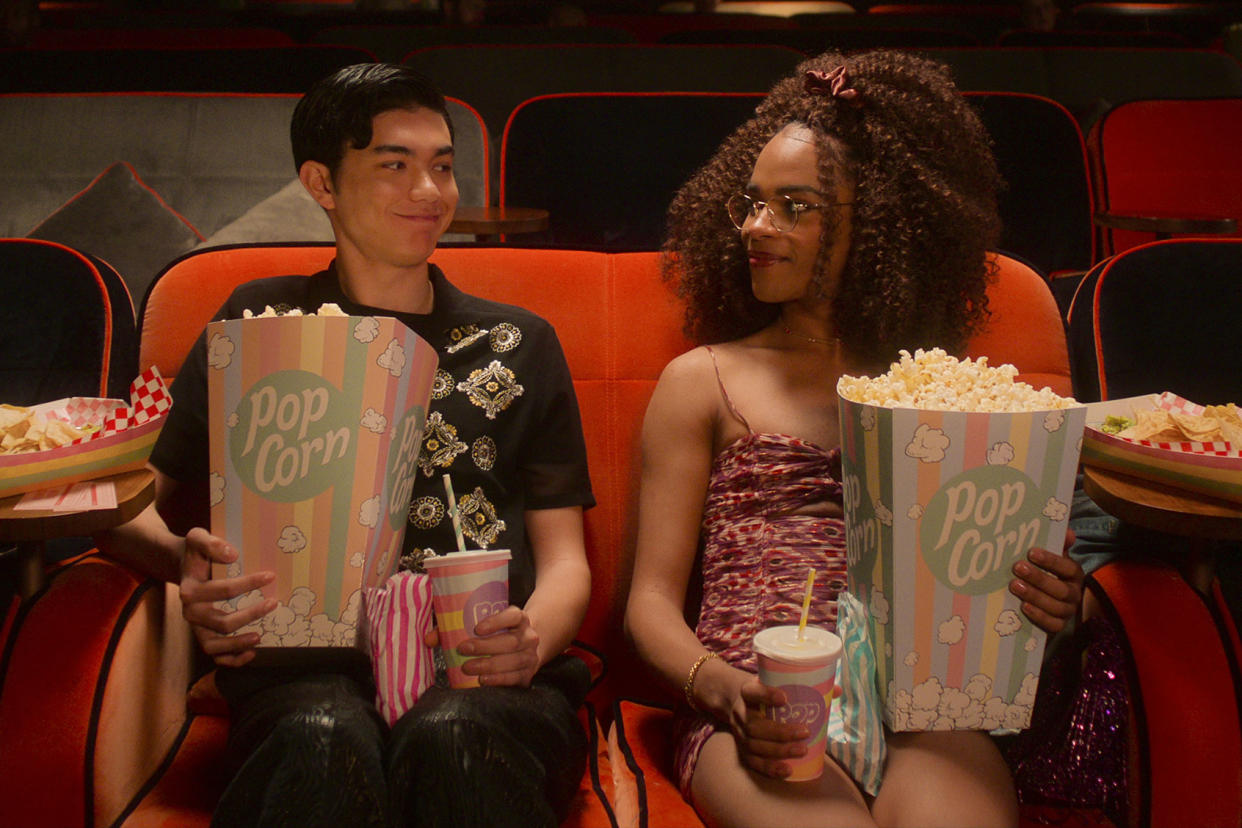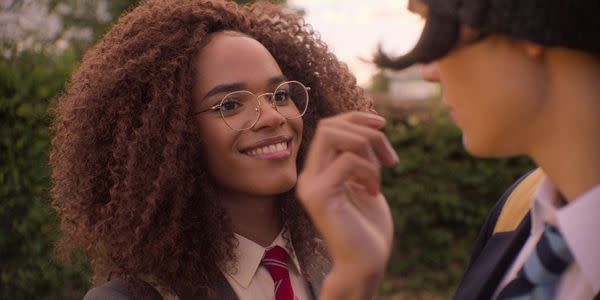"Heartstopper" illuminates that being a trans youth is joyful, everyday and larger than politics

Netflix's young adult breakout hit "Heartstopper" is back but most importantly, this season, it gives Elle (Yasmin Finney) — the show's biracial transgender lead — room to be front and center to revel in being a dynamic, full-fledged teenager. Her existence and arc in the show, depict a radical view of acceptance juxtaposed to the national backlash against trans people and children in America's growing and incessant culture wars involving anti-trans views from celebrities like Ne-Yo and author J.K. Rowling and in state-level legislative agendas banning gender-affirming care and education.
The three-time Grammy winner, Ne-Yo was recently criticized after he shared his views on gender identity, gender-affirming care and parenting. "If your little boy comes up to you and says, 'Daddy I wanna be a girl,' you just let him rock with that?" he said. Although he apologized for his comments on Twitter (now X), regretting any hurt he may have caused, but just as quickly walked back his comments. In a two-minute video he posted, he doubled down, saying, "I will never be OK with allowing a child to make a decision detrimental to their life."
Unlike Ne-Yo, Rowling has not apologized for her anti-trans beliefs and has doubled down. But she has faced some public repercussions and fallout since her anti-trans barrage on Twitter. She has been recently been removed from the Museum of Pop Culture for her "super hateful and divisive" transphobic views, and Daniel Radcliffe — the lead of the very lucrative film adaption of Rowling's "Harry Potter" book series — penned an open letter publically denouncing her stance on transgender women multiple times.
In both instances, Ne-Y'so and Rowling's comments reflect a sentiment that illustrates a complete and utter lack of understanding of transgender issues and the pressing violent agenda that continues to attack trans liberation. In particular, their comments could have an impact on transgender youths, whose stories are woefully underrepresented onscreen. While young transgender characters do exist, they're often brought in for a single special episode – such as on Netflix's "Baby-sitters Club" or ABC medical drama "The Good Doctor" – in which their trans identity is their sole reason for inclusion, or as a recurring character, such as on Freeform's "The Fosters."

Yasmin Finney in "Heartstopper" (Netflix)In contrast, "Heartstopper's" Elle is one of the few lead trans teen characters in popular media, and in particular on one of the most-watched Netflix shows that has a global reach of over 200 million people around the world. This reach is important because Elle is one of the few transgender youth characters with enough screentime to achieve the level of care, interiority and humanity required to create a fully dimensional person.
In the series' first season, Elle's main story was adjusting to a new school and making new friends there, a relatable experience for many youths. This season gives her more of a spotlight, and therefore even more time to shine. Elle is worried about ruining her friendship with her best friend Tao (Will Gao) because she's in love with him. She fears moving away from the ones she loves after she's accepted into a prestigious art school. She's excited because she found new queer and trans friends she can relate to. She's anxious about her junior prom. All the while, she is also trans. Her journey isn't inherently political. The show stresses that Elle has struggled with her identity partially because of the lack of acceptance from ignorant people, and partly because she's a teenager who's still on her journey to self-actualization.
Elle exists as a multitude of different versions of herself. Finney does not have to play the transgender identity of the character because it's already present. It's a part of Elle's journey throughout the show, but it's not the only thing about her that matters — in actuality, it's more like the thing you forget about because she's such a fleshed-out teenager.
Attacks on the beauty of being transgender fail to see that just because one does not understand it, does not mean they have to vilify it by denying trans people basic human decency. Ne-Yo's statements negate that gender-affirming care is life-saving care for transgender children and teenagers, especially since the percentage of trans homeless and suicide in children grow increasingly troubling as each state legislature passes restrictions on trans rights.
Rowling's position as one of the most successful children's authors ever has launched her into the upper echelons of the cultural sphere. Most of the enjoyers of her media are young adults — some of whom are trans. This is why Radcliffe, Harry Potter himself, said since finishing the blockbuster film series, "I've met so many queer and trans kids and young people who had a huge amount of identification with Potter on that. And so seeing them hurt on that day I was like, I wanted them to know that not everybody in the franchise felt that way. And that was really important."
All of this is to say, Elle's story shouldn't be an outlier in young adult media. There must be healthy, honest portrayals of trans coming-of-age stories because it may not be revolutionary to some but it can create the shift in the paradigm necessary to change the imagery associated with being trans from villainization or victimization to main character.
Read more
about this topic
